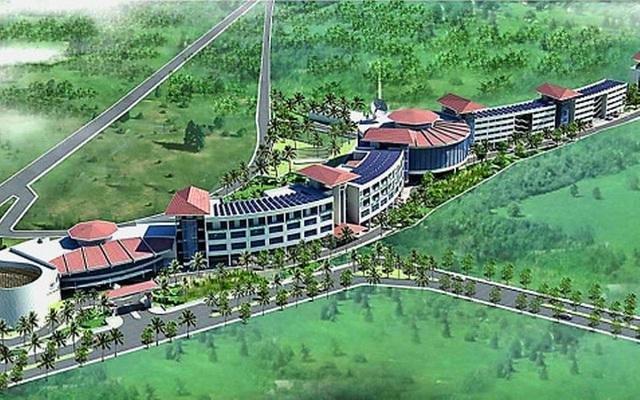PropTech trends: Technological disruption in real estate
It is an understatement to say that the last two years have changed the way the real estate market operates. Technology advancement in the real estate sector was crucial as the pandemic worsened. As a result of the pandemic, PropTech companies emerged as true game-changers in a sector like real estate that has traditionally been
It is an understatement to say that the last two years have changed the way the real estate market operates. Technology advancement in the real estate sector was crucial as the pandemic worsened. As a result of the pandemic, PropTech companies emerged as true game-changers in a sector like real estate that has traditionally been slow to adopt technology.
PropTech is booming and will disrupt the real estate sector by changing the way we view property investments. Tech-enabled platforms help buyers/investors view multiple properties without leaving their homes. With an ever-changing digital landscape and a new consumption pattern, these platforms are taking on the real estate industry and making it better.
In a report published by EY, real estate firms are now realizing they need to adjust to the changing technology landscape in order to remain competitive. The PropTech market has grown and evolved after COVID-19. Some trends such as the use of AI, machine learning and Robotic process automation (RPA) are likely to witness significant growth in 2021 due to the growing demand for tech-enabled real estate platforms. Real-time evaluation of a wide range of properties is possible with such technologies.
The rise of artificial intelligence evolution in real estate
With regard to asset identification and selection, Artificial Intelligence has significantly improved decision-making. AI platforms process big-data sets to identify correlations, patterns, and relationships across a wide range of parameters and variables with algorithms and machine learning. The asset selection process over time has evolved from subjective evaluation to a deterministic and quantifiable one by identifying such variables and evaluating their impact on probabilistic models in a multi-scenario setting.
Ideally designed AI algorithms constantly test the feasibility and impact of different parameters – this often results in significant insights triggering a ‘butterfly effect’. A butterfly effect occurs when small changes have unpredictable, non-linear effects on a complex system. In addition to predicting safety hazards and construction defects, AI can help save time and money.
AI can assist in determining the rates of a property through the use of a “predictive analysis” algorithm. A predictive analytic algorithm may evaluate the likelihood of occurrence relevant events – such as a change in demographic patterns in a micro-market, income distributions in the vicinity, or the projection of future competitive supply. In this way, the true intrinsic value of a property can be determined. The market often does not reflect the intrinsic value of assets, so such algorithms provide a compelling opportunity to identify assets with a higher intrinsic value than the prevailing market rates.
Increased adaption of cloud-based technology to ease the work
Due to the cloud, real estate stakeholders can now access their properties’ data from anywhere. In the cloud, large data sets can be stored on a remote server, which can be accessed by stakeholders to answer customer questions about any property they are interested in. As a result, manual office work is reduced and searching for documents is saved a significant amount of time and energy. Rapid Scale’s research indicates about 80% of top PropTech companies are using some form of cloud technology. Cloud computing is offered in three main service models, each of which addresses a particular corporate need. The three paradigms are Software as a Service (SaaS), Platform as a Service (PaaS), and Infrastructure as a Service (IaaS).
Virtual tour of the property
Due to the second wave hitting our country, movement is restricted to a point where an investor or buyer is unable to see the property they are interested in. A virtual tour of the property can be viewed and decisions can be made. Stakeholders and buyers participate in a virtual tour and all questions are answered regarding the property during a video conference. Virtual property tours allow potential buyers to see how a property really looks and feels. Investors and buyers often feel that the quality of real estate does not meet their expectations. Virtual tours are now an option rather than relying on one’s imagination.
Robotic Process Automation
It involves the use of software or robots to automate routine clerical tasks at a site that don’t require high-level decision-making. For example, coordinating signatures and approvals amongst multiple vendors and regulating contracts. Bots can automate other clerical tasks, such as obtaining buyer and seller data, preparing data compliance reports, and maintaining data.
This is a more cost-effective option. RPA has been proven to reduce operational costs by 10% to 40% for companies that have implemented it. RPA lets an employee focus on higher-value tasks, such as interacting directly with potential buyers and sellers. In turn, this results in more deals being closed, which directly affects revenue generation. Thus, human error is significantly reduced, resulting in more reliable results.
Data compliance becomes easier as a result. The Indian real estate industry has traditionally been largely unorganised. However, technological advancements have revolutionized the industry by making it more accessible to the retail investor, transparent, and more reliable for end users. In a technology-driven world, real estate innovations and developments are key to ensuring its longevity and success.
Disclaimer: The author of this article is Aryaman Vir, Founder & CEO of MYRE CAPITAL Views expressed are the author’s own.











